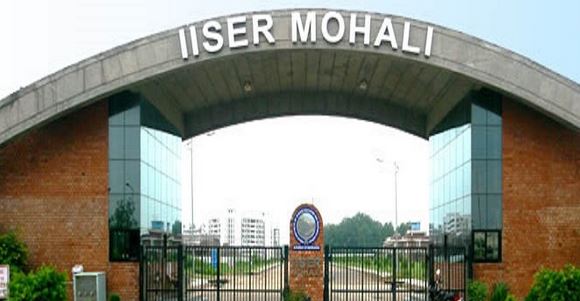Knowledge City expands to welcome another institution of repute
Punjab is basically an agrarian state with the majority of its population engaged in and depended on agricultural activities. Thus, it is no surprise that providing benefits to farmers and their welfare is of the utmost priority for the government of Punjab. The government has sincerely striven to provide the farmers access to facilities that are essential for their livelihood. As the world is moving towards better technologies to aid farmers, the Punjab government aims to promote the same technologies for its farmers and provide their access to achieve sustainable growth in agriculture. With most of the Punjab so depended on agriculture and food for livelihood, the Punjab government considered it sensible to have a premier institution that will focus on agriculture and food industry of Punjab with respect to development in its biotechnology sector.
 National Agri-Food Biotechnology Institute (NABI) as the name suggests pertains to biotechnological research in Agri-food sector but not just for Punjab. It is an institute of national importance that aims to transform the agri – food sector in India with the help of biotechnology. It is an autonomous institution established by the Government of India under the aegis of Department of Biotechnology, Ministry of Science and Technology. It’s is located in the Knowledge City of Mohali along with other prestigious institutes like Indian Institute of Science, Education and Research (IISER) and Institute of Nano Science and Technology (INST).
National Agri-Food Biotechnology Institute (NABI) as the name suggests pertains to biotechnological research in Agri-food sector but not just for Punjab. It is an institute of national importance that aims to transform the agri – food sector in India with the help of biotechnology. It is an autonomous institution established by the Government of India under the aegis of Department of Biotechnology, Ministry of Science and Technology. It’s is located in the Knowledge City of Mohali along with other prestigious institutes like Indian Institute of Science, Education and Research (IISER) and Institute of Nano Science and Technology (INST).
The institute was formalised with a specific vision –“To be a nodal organization for knowledge generation and translational science leading to value added products based on agri- food biotechnological innovations.” The research opportunities in Biotechnology are still too few in India. But with it’s huge potential, it’s quickly gaining momentum in various industries. Agriculture and food sector can especially benefit from advancement in biotech research. The aim of the institution is also to provide scientific skills to enhance the quality of workmanship of young scientists. As biotechnology is still a new word in Indian and especially Punjab’s vocabulary, the government also encourages NABI to actively involve itself in raising awareness about the benefits of biotechnology and biotech products. Young students of Punjab can especially benefit from the presence of NABI. The science inclined pupils will not only find inspiration from this resourceful institute, but also those with interest in agri-food industry will not have to bear the stress of going out of the state to achieve quality education. An institution of such calibre is expected to generate talent, interest, innovative solutions and products to meet the needs of India.
The government of Punjab has always stressed the importance of education and worked hard to encourage the students to take up the science and mathematics field, which is the need of the future. NABI is yet another great institution on Punjab soil that will not only help in the development of Punjab, but also the nation and even the world.




